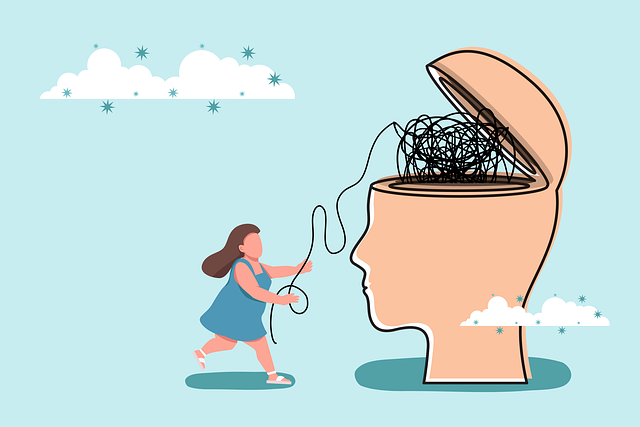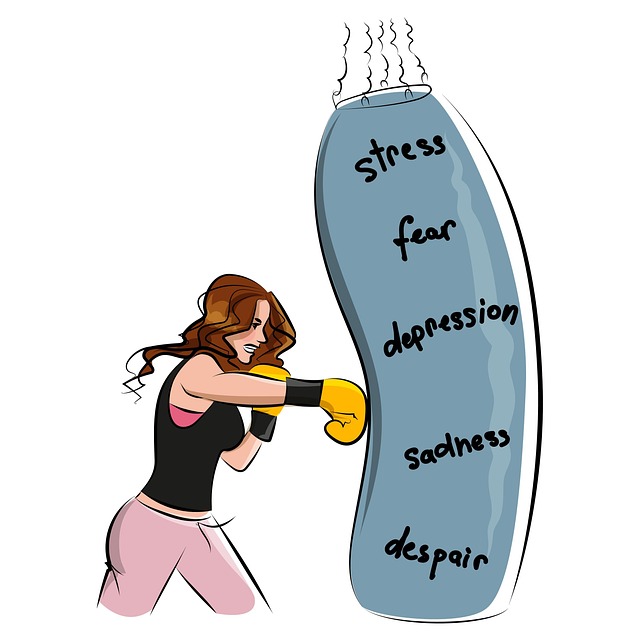Mental wellness in young children is shaped by their emotional, psychological, and social development. Early signs of distress, such as difficulties with emotional regulation or social interactions, can be addressed through interventions like family counseling and age-specific therapy. Parents play a vital role in identifying these issues. Interventions include social skills training, stress reduction techniques, and positive thinking exercises. Burnout prevention emphasizes rest, play, and a balanced lifestyle. Family counseling is a powerful tool that addresses mental health within family dynamics, improving communication and household interactions. Accessible therapy options include individual counseling, family therapy, and group sessions tailored to specific needs.
Promoting mental wellness in young children is a cornerstone of their overall development. This article explores effective strategies, focusing on early intervention techniques that can foster emotional well-being. We delve into the significant role of family counseling in addressing mental health challenges and providing resources to help families access therapy for young children. By understanding these approaches, parents and caregivers can create supportive environments, ensuring their children grow up with resilient mental health.
- Understanding Mental Wellness in Young Children: Early Intervention Strategies
- The Role of Family Counseling in Promoting Emotional Well-being
- Accessing Therapy: Resources and Support for Families Seeking Help
Understanding Mental Wellness in Young Children: Early Intervention Strategies

Understanding Mental wellness in young children involves recognizing that their emotional, psychological, and social development is crucial for overall well-being. Early signs of distress or difficulties in areas like emotional regulation, social interactions, and behaviour can be addressed through effective intervention strategies. Parents and caregivers play a pivotal role in identifying these issues, as they often spend significant time with the children and can observe changes in their mood, behaviour, and daily routines.
Early intervention for mental wellness can take various forms, including therapy for young children tailored to their age and needs, such as family counseling that involves parents and siblings. Social skills training has proven beneficial in fostering healthy relationships and reducing anxiety. Additionally, promoting positive thinking through age-appropriate activities and discussions can help build resilience and coping mechanisms. Burnout prevention is also essential, encouraging rest, play, and a balanced lifestyle to support young minds in navigating the complexities of growing up.
The Role of Family Counseling in Promoting Emotional Well-being

Family counseling plays a pivotal role in promoting emotional well-being, especially for young children. This therapeutic approach recognizes that a child’s mental health is deeply intertwined with their family dynamics and relationships. By involving parents or caregivers in the therapy process, counselors can offer valuable guidance on navigating challenging behaviors, improving communication, and fostering healthier interactions within the household. Such interventions are crucial in developing inner strength among children by equipping them with effective coping strategies and emotional regulation skills.
The benefits extend beyond individual family members; they positively impact the broader mental health policy landscape. Effective family counseling can help prevent more severe mental health issues from arising and reduce the need for intensive crisis intervention guidance. It contributes to a holistic Mental Health Policy Analysis and Advocacy approach, where early interventions focus on strengthening families and communities, thereby reducing the burden on healthcare systems.
Accessing Therapy: Resources and Support for Families Seeking Help

Accessing therapy is a crucial step for families seeking support for their young children’s mental wellness. The first challenge many encounter is finding the right kind of help, as options include individual counseling, family therapy, or group sessions tailored to specific needs. For parents aiming to foster healthy emotional development in their kids, family counseling can be transformative. It provides a safe space to navigate and improve communication, address underlying issues, and enhance overall family dynamics.
Resources are abundant, with many communities offering accessible therapy options through local clinics, schools, or community centers. Online platforms have also made it easier to connect with licensed therapists who specialize in working with young children and their families. These services cater to various needs, from managing mood disorders and improving self-esteem to enhancing emotional intelligence—all vital components of a child’s mental health journey.
Promoting mental wellness in young children involves a multi-faceted approach, from early intervention strategies to family counseling and accessible therapy. By understanding the unique needs of young minds and providing appropriate support, we can foster healthier, happier individuals. Family counseling plays a crucial role in navigating emotional challenges, offering a safe space for open communication and strengthening familial bonds. With the right resources and support, families can access therapy, ensuring their children receive the necessary care for optimal mental health.










